Call for Papers: Tourism Review
Special Issue on Gender and Mobility in Tourism
Guest Editors:
Jaeyeon Choe, PhD
Centre for Events, Leisure, Society & Culture, Faculty of Management
Bournemouth University, UK
Cristopher Livecchi, PhD
Department of Geography
State University of New York, USA
Gender in/and tourism have been gaining an increasing attention from tourism scholars since the 1990s (e.g., Aitchison, 2005; Figueroa-Domecq et al., 2015; Ferguson, 2011; Ireland, 1993; Pritchard & Morgan, 2000; Munar et al., 2015; Swain, 1995). Despite growing interest and published works, the nexus of tourism and gender has not been thoroughly explored by researchers. Gender and tourism literature is fragmented, with a lack of communication and collaboration across disciplines even though there are overlapping topic areas and discussions. There has not been enough interdisciplinary research work carried out, leading to fragmented literature reviews, theorization processes and methods. Thus, the primary aim of this special issue is to thoroughly review the theories, theorization processes and methods/methodology of gender studies in tourism, by encouraging the incorporation of LGBT, queer studies and ‘White’ feminism concepts and theories.
Secondly, we are interested in exploring how migration and mobility in a globalising world have affected gender issues in relation to tourism, and implications of practices, politics and meanings of mobility for women (Porter, 2011). Migration theory had begun to include feminist theory in the early 1990s (Chant ,1992), and has provided insights into the connections and the mutually constitutive relationship between the construction of masculinities and masculinist ideologies; and migration, (im)mobilities and transnationalism and gender issues. As scholars interested in migration and mobilities work collaboratively and transnationally across different worlds (Yeoh & Ramdas, 2014), papers that address how migration and gender issues influence tourism research and practices are welcome. We also welcome papers that incorporate action research, as well as papers that develop future research directions.
In summary, this special issue, we seek papers related to issues about (im)mobilities, migration, LGBTQ, ‘White’ feminism, action research, social sustainability and the cultural geography of gender and tourism. We invite contributions from a variety of disciplines including anthropology, geography, sociology, psychology, cultural studies, leisure studies, tourism studies and education. We invite you to submit papers on topics that include (but are not limited to):
– Migration and gender (in)equality
– Gender politics, migration and (im)mobilities
– Action research in gender and tourism
– Research methods development
– LGBT/queer studies in tourism field
– ‘White’ feminism/ ‘White’ masculinity
– Cultural geography of gender and tourism
– Social sustainability and gender issues
– Gender and the Sharing Economy
– “Dangerous women” in tourism
– Implications of practices, politics and meanings of mobility for women
– Gender, migration and (im)moralities in developing worlds
– Brexit and its potential impact on immigrant women communities
Each article should be approximately 3000-5500 words long.
Submission Deadlines:
· 500 words abstract due: 20 December 2016
· Full paper due: 20 February 2017
Please send your abstracts/papers to Jaeyeon Choe, PhD (jchoe@bournemouth.ac.uk)
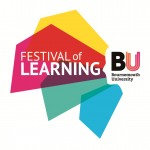 Don’t miss our drop-in sessions where we can offer you support in planning your event for Festival of Learning 2017.
Don’t miss our drop-in sessions where we can offer you support in planning your event for Festival of Learning 2017.
 Did you know that more people play disability football than rugby league in the UK?
Did you know that more people play disability football than rugby league in the UK? As part of the Research and Knowledge Exchange Development Framework, RKEO are holding a workshop for academics to learn more about funding opportunities from Innovate UK. This workshop will be led by our local Innovate UK KTP Adviser and the will be talking about various Innovate UK funding opportunities. There will also be a drop-in session for one-to-one advice.
As part of the Research and Knowledge Exchange Development Framework, RKEO are holding a workshop for academics to learn more about funding opportunities from Innovate UK. This workshop will be led by our local Innovate UK KTP Adviser and the will be talking about various Innovate UK funding opportunities. There will also be a drop-in session for one-to-one advice.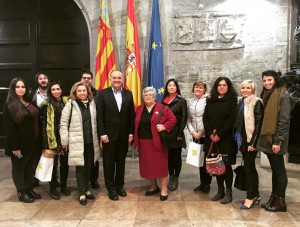
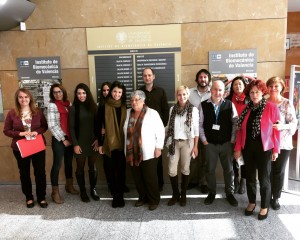
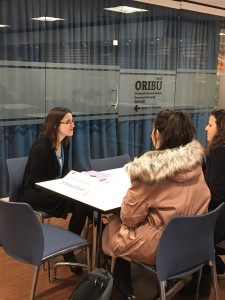


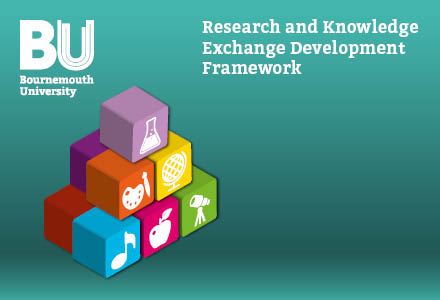
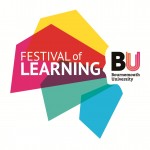 The deadline to submit your proposals for
The deadline to submit your proposals for 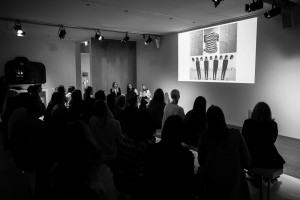
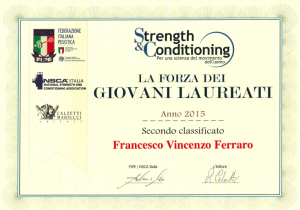
 using a system of 8 QTM cameras and a force plate, I measured the effect of different tasks upon the static balance in 20 young volunteers.
using a system of 8 QTM cameras and a force plate, I measured the effect of different tasks upon the static balance in 20 young volunteers.
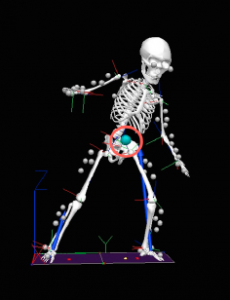 Special thanks go to the people who helped me at the
Special thanks go to the people who helped me at the 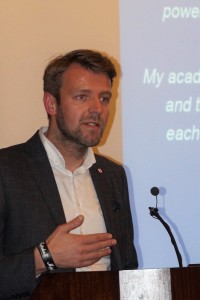 Paweł Surowiec
Paweł Surowiec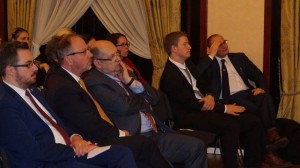 the Centre for Media and Politics, talks by Dr Paweł Surowiec of Bournemouth University and Dr Keith Dinnie of Middesex University as well as the Q&A session with the both panelists. The event was mainly attended by academics analysing diplomacy and statecraft, London-based public diplomats (from, among others, German, Slovakian, Polish, Indonesian, Ethiopian, Canadian embassies and cultural diplomacy institutes) as well as by the Faculty’s fellows and students reading for their degrees on BA (Hons) Politics and MA International Political Communication.
the Centre for Media and Politics, talks by Dr Paweł Surowiec of Bournemouth University and Dr Keith Dinnie of Middesex University as well as the Q&A session with the both panelists. The event was mainly attended by academics analysing diplomacy and statecraft, London-based public diplomats (from, among others, German, Slovakian, Polish, Indonesian, Ethiopian, Canadian embassies and cultural diplomacy institutes) as well as by the Faculty’s fellows and students reading for their degrees on BA (Hons) Politics and MA International Political Communication. Most of us shop for food in supermarkets on a regular basis, but do we give enough thought to the data gathered about our shopping habits? Barcode scanners can provide supermarkets with a wealth of information about consumer behaviour and food pricing.
Most of us shop for food in supermarkets on a regular basis, but do we give enough thought to the data gathered about our shopping habits? Barcode scanners can provide supermarkets with a wealth of information about consumer behaviour and food pricing.











 Expand Your Impact: Collaboration and Networking Workshops for Researchers
Expand Your Impact: Collaboration and Networking Workshops for Researchers Visiting Prof. Sujan Marahatta presenting at BU
Visiting Prof. Sujan Marahatta presenting at BU 3C Event: Research Culture, Community & Can you Guess Who? Thursday 26 March 1-2pm
3C Event: Research Culture, Community & Can you Guess Who? Thursday 26 March 1-2pm UKCGE Recognised Research Supervision Programme: Deadline Approaching
UKCGE Recognised Research Supervision Programme: Deadline Approaching ECR Funding Open Call: Research Culture & Community Grant – Apply now
ECR Funding Open Call: Research Culture & Community Grant – Apply now ECR Funding Open Call: Research Culture & Community Grant – Application Deadline Friday 12 December
ECR Funding Open Call: Research Culture & Community Grant – Application Deadline Friday 12 December MSCA Postdoctoral Fellowships 2025 Call
MSCA Postdoctoral Fellowships 2025 Call ERC Advanced Grant 2025 Webinar
ERC Advanced Grant 2025 Webinar Update on UKRO services
Update on UKRO services European research project exploring use of ‘virtual twins’ to better manage metabolic associated fatty liver disease
European research project exploring use of ‘virtual twins’ to better manage metabolic associated fatty liver disease